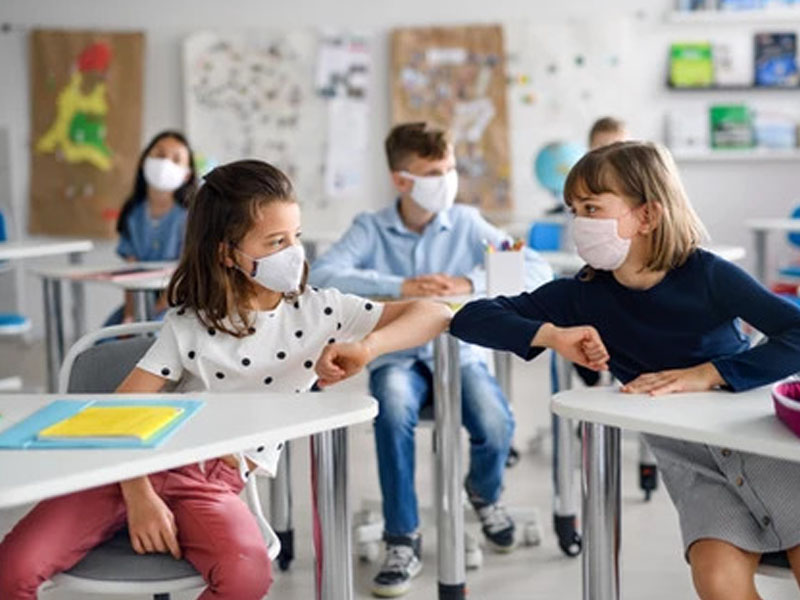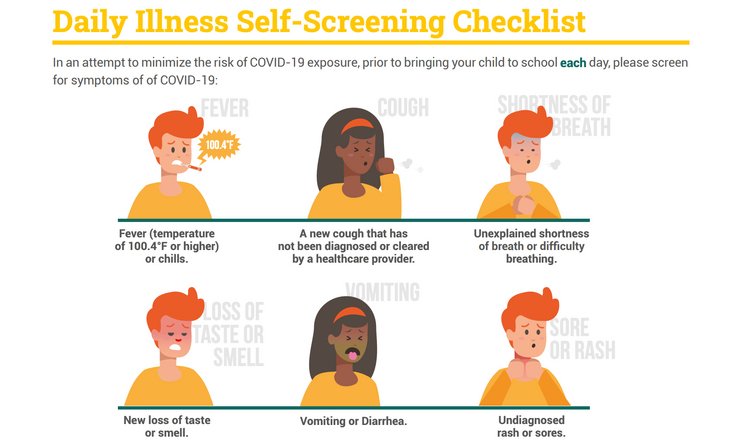Back to School – 2021 Pandemic Edition

Hello, fall! Some of you are already in school, some are about to start, and some schools have delayed their start. Welcome back to school… in person!
I’ve always loved back-to-school time. New pencils and pens, new notebooks, and new classes have always been exciting to me, whether they’re my own or my children’s. This year it’s hitting a little different though, isn’t it? We’re adding masks and sanitizer to our shopping lists, while watching national headlines with trepidation. While we are so happy about being back in school in person, there is a lot to think about. I know I’ve been concerned, and I’ve been getting a lot of calls from worried parents as well. We all want to keep our kids safe and make the best decisions for them. Here is a brief guide to a successful school year in 2021.
Reading news stories about school outbreaks in multiple states can cause alarm. But we are lucky to live in the PNW, where schools are providing multiple layers of protection: universal masking, fully vaccinated teachers and staff (by October 18), distancing when possible, and improved ventilation in classrooms. Layered together, these measures and more work to protect our students from infection. What can we do as families to make this school year as safe as possible?

Daily Routines
Starting a new school year is always a little tiring, but when we haven’t had full, in-person school days for over a year it can be exhausting. One of my patients said it best last week,
“It feels abnormal to try and do normal things.”
Having daily routines and protecting schedules to allow down time for our kids can be helpful. A consistent bedtime routine, whether that is reading a book or turning off a phone, and a regular bedtime is important. For the first couple of months, an even earlier bedtime than normal may be needed. Sitting down to eat dinner together has been shown to improve our children’s nutrition, mental health, and academic achievement. It is a great time to hear about the funny and challenging parts of each other’s days, and supports emotional connections in our families. If family dinner is a new thing for you, start with one to two times a week and go from there. The Family Dinner Project has meal and conversation ideas to help you make this a family habit.
Masks
Masks are an important layer of protection. Researchers in Bangladesh just released findings from the largest randomized mask trial to date, showing that masks help reduce the spread of COVID-19. While studies have shown surgical masks, N95, and KN94 masks do provide better protection than a cloth mask, what is most important is finding a mask that fits well without gaps, and that your child can comfortably wear all day. Adding layers to a cloth mask also improves its effectiveness. Be prepared for the school year with multiple masks, and have an extra in your child’s backpack when they go to school. That way they can change out if their mask becomes wet or dirty.
In our office we have seen children as young as 2 years wear their masks properly and without problems. But getting used to wearing a mask takes time, and for some children, especially those with sensory disorders, it can be more difficult. The Oregon Pediatric Society has many useful tips for helping children wear masks successfully, as well as answers to common mask questions and concerns.
Vaccines
For our children too young to be vaccinated, one of the best ways to protect them is to surround them with vaccinated people. Make sure anyone in your family who is eligible gets vaccinated, including those 12 years and older. As soon as the vaccine was made available for 12 – 15 year olds, my daughters got their vaccine. Being vaccinated protects them, but it also provides a layer of protection for our youngest who can’t be vaccinated yet. If you have questions or concerns about the vaccine please call. You can also check out our newly-updated COVID vaccine FAQ.
Daily Symptom Checks & Testing
Keeping sick students home helps contain the spread of all infectious diseases, including COVID-19. Screening our students daily, and making sure they know to tell someone if they start feeling sick at school is an important part to minimize infections. Testing when symptoms are suspicious for COVID-19 helps to clarify who needs isolation and quarantine. Many schools will have testing available on-site for students who start feeling sick at school, and some will also offer screening tests for students without symptoms. Check with your school for details. Our office offers testing for symptomatic and exposed patients.

Sports
Sports play an important role in the physical and mental health of children. Schools have guidelines for athletics that help minimize infections. Need some help evaluating the COVID-19 risks of different sports? The AAP has this resource to guide decision making. Special precautions are needed for children, especially adolescents, who have had a COVID-19 infection before they can return to sports. This is due to the risk of myocarditis (inflammation of the heart muscle) and pericarditis (inflammation of the lining around the heart) after infection.
Mental Health
We are all experiencing pandemic strain and fatigue. Our children are feeling it too, and they’re trying to manage their emotions with still-developing brains. I’ve been hearing from my patients that they are excited to go back to school, but are also feeling a fair amount of anxiety. It was difficult to adjust to pandemic life 18 months ago, and it is going to take time to readjust to going back to some normal activities. Be gentle with yourselves and your children, not mention their teachers! Make sure your kids are getting good sleep and good nutrition, as well as time and space to decompress after school. Allow them time to share their emotions and feelings without judgment. Talk to your schools about the social and emotional supports they offer. If you are concerned about your child, please call the office.
Our children have sacrificed so much over the past 18 months. I hope we can all work together by using social distancing, masking, and vaccines to protect them and keep them in school.
